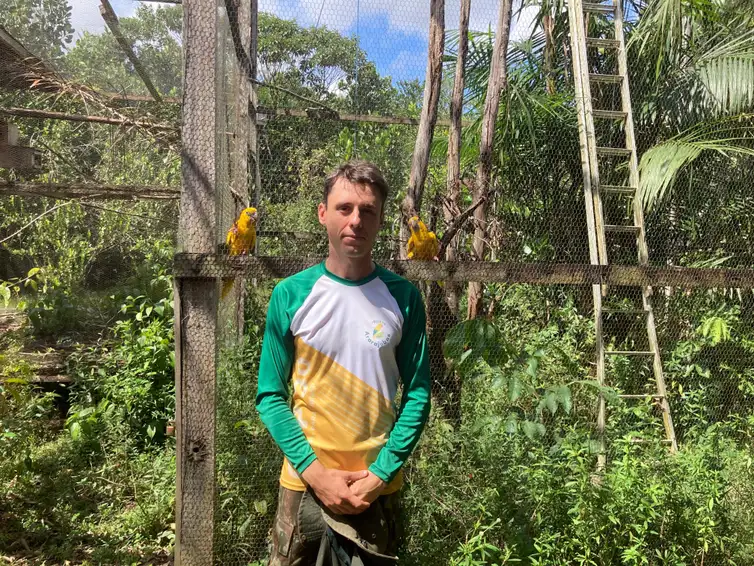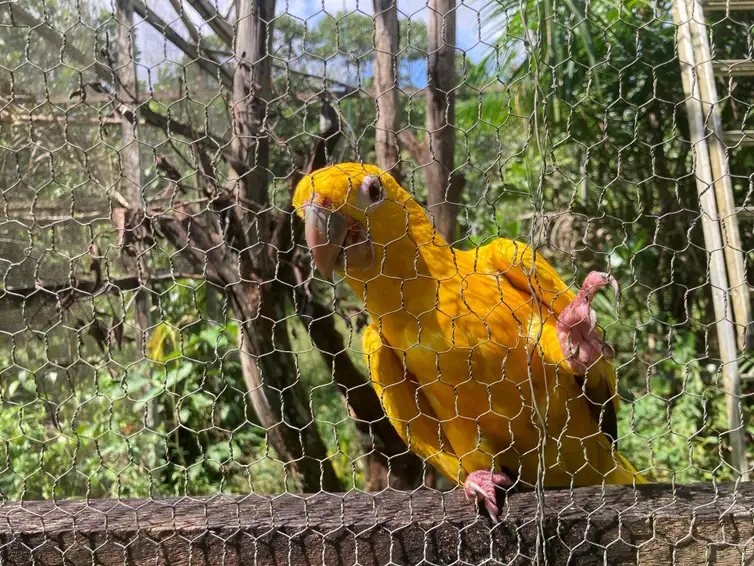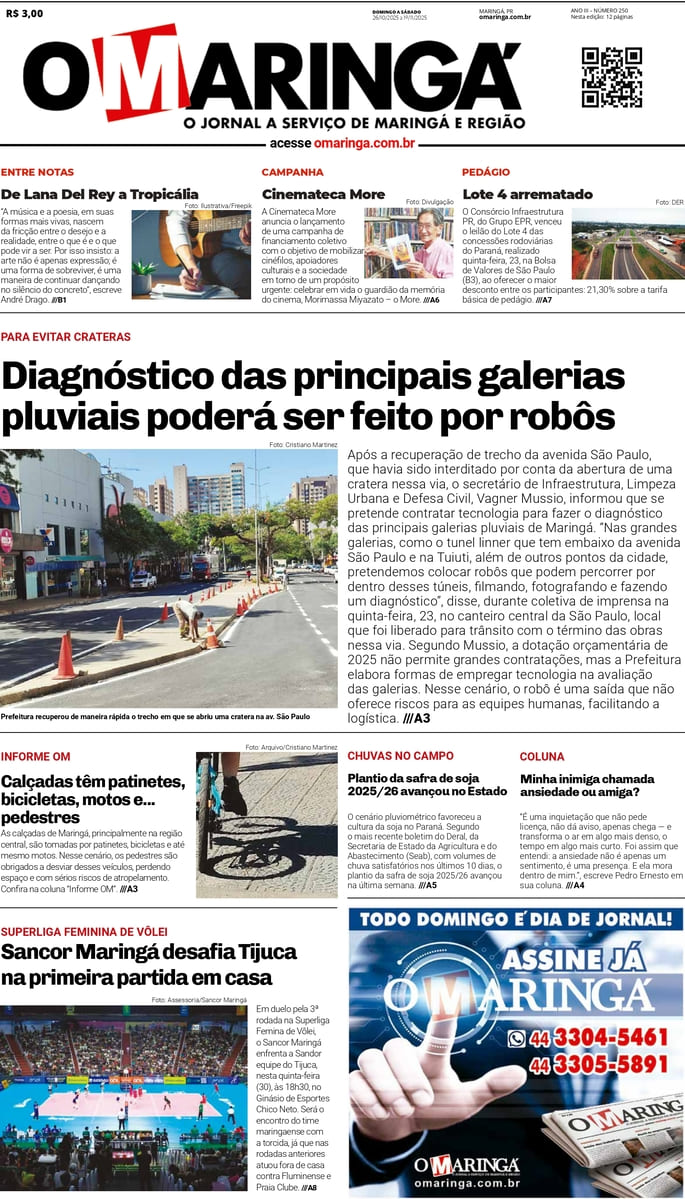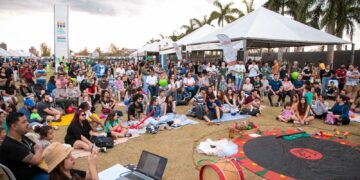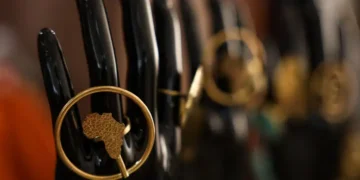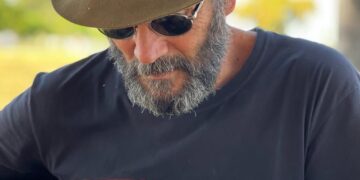Docile, small, and rare, the golden parakeet (Guaruba guarouba) is an eye-catching bird known for its intense yellow plumage and bright green wingtips. All this beauty, however, makes the ararajuba, as it is known in Brazil, an easy target for capture and wildlife trafficking.

In the Utinga Park, located in the Amazon city of Belém, two individuals, one female and one male, are waiting in the aviary for the day when they will be able to take flight and join the other 50 or so birds rehabilitated and released by the Ararajuba Project— but they may never see this day come.
“Some of them have difficult backgrounds, with apprehension operations, and end up becoming tame. They don’t learn to fly so well and show behaviors that are incompatible with living in the wild,” said the project’s field biologist Marcelo Rodrigues.
When approaching the restricted space where the birds are kept away from human contact, one of the golden parakeets immediately tries to interact with the biologist, but he warns that this type of behavior is exactly what puts these birds’ lives at risk.
“They need to get unaccustomed to human presence, otherwise they might be recaptured,” he pointed out.
During their time in the aviary, in addition to being kept away from humans, they are fed only on native fruits.
These two golden parakeets have fallen victim to the capture, the irresponsible possession, and the trafficking of wild animals, which affected around 13 million specimens of fauna and flora in 162 countries from 2015 to 2021, as per data from the World Wildlife Crime Report.
According to WWF-Brazil’s conservation and programs specialist, Marcelo Oliveira, science has shown that the decline in wildlife populations has been a reality for decades.
“Fauna species are essential for maintaining forests, rivers, fields, and other environments that guarantee the planet’s climate security. The removal of animals and their imprisonment outside their natural environment contributes to this process,” Oliveira stated.
A new threat
Brazil’s environment authority Ibama has reported that many of these animals end up being removed from their natural environments due to a growing practice among young people connected to social networks—the habit of posting photos of unusual animals.
“Young Brazilians, especially the generation connected to social networks, are today the main consumers of wild animals as pets. These young people, in search of originality and digital visibility, are attracted to exotic species,” said Graciele Gracicleide Braga, Ibama’s general coordinator for the management and monitoring of the use of wildlife.
The golden parakeet, for example, only exists in Brazil, in a small territory that occupies part of the state of Pará and small portions of the states of Maranhão, Amazonas, Rondônia, and Mato Grosso. It is currently classified as an endangered species.
In addition to projects such as the one in Belém, which aims to re-establish the population of these animals in regions where they had already become extinct, Ibama reported that, in 2023 alone, more than 30 thousand wild animals of various species were released after rehabilitation.
To raise public awareness about the negative impacts of exposing animals in domestic environments, Ibama and WWF-Brazil have joined forces in a campaign entitled the “Se não é livre, eu não curto” (“No freedom, no likes”).
According to the director of the Department for the Conservation and Sustainable Use of Biodiversity at the Ministry of the Environment, Bráulio Dias, the exhibition of these animals in domestic contexts increases the demand for species of Brazilian fauna, boosting trafficking and aggravating the impacts on biodiversity.
“We must differentiate between wild and domesticated animals and reinforce that the well-being of fauna is directly related to its permanence in its natural habitat,” he argued.
Crédito arquivo Nacional EBC
Leia Mais em: O Maringá


